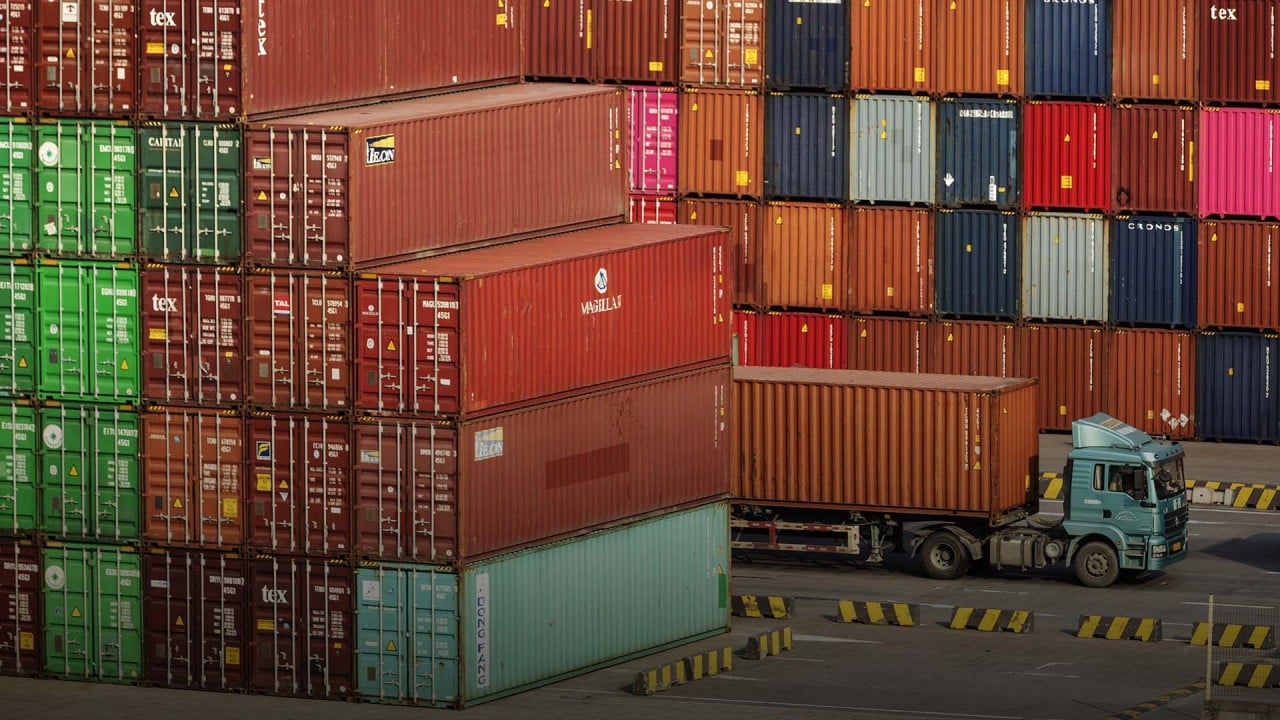As WTO members squabble over China’s role, dangers lurk for global trade
- The growing perception gap over China’s contributions and damage to global trade and the WTO threatens to compromise the organisation’s future and make urgently needed reforms difficult

Twenty years after its World Trade Organization entry, China faces a spectrum of divergent views on its role in the international trading system underpinned by the WTO. This perception gap among countries – ranging from optimism to criticism – could have profound implications for China, other WTO members including the United States, and the WTO itself.
It also represents a departure from the global reception of Chinese accession to the WTO in the early years: a historic move welcomed by most members across political lines, economic status and geography.
China’s journey to WTO membership was long and arduous. It took 15 years of negotiation, resulting in a 900-page agreement, which was adopted by consensus by the then-142 members. This process involved significant Chinese efforts to unlock its considerably closed economy and highly controlled foreign trade.
Beijing had to modify more than 2,300 national laws and regulations to adapt to WTO commitments. As premier Zhu Rongji said when visiting Washington in 1999, with accession to the WTO, China would accelerate its domestic reforms and modernise the economy.
Not only China, but the entire membership hailed the successful conclusion of the negotiations. China would open up its economy and, in return, WTO members committed to apply to China the same treatment offered to products and services from other countries.
For the US, then-president Bill Clinton summarised this as an “one-way street” to greater economic liberalisation in China, and a potential catalyst for political convergence with the West.
Fast forward to 2021: China has profoundly changed the landscape of international trade in the span of two decades. Its goods exports and imports have increased by over nine times from 2001 levels.
When it joined the WTO, China was the world’s sixth-largest importer and exporter. Now, it is the top exporter and the No 2 importer. China’s share in global exports has risen from 4 per cent to 15 per cent, and in imports from 4 per cent to 12 per cent.
Commensurate with these seismic shifts, WTO members today may have very different views on the impact of China’s accession to the WTO than in 2001.
On one hand, China has surely played a major role in the expansion of global trade and become a large export market for most countries as well as a lucrative destination for foreign multinationals. On the other, China has also proven to be a formidable competitor for WTO members in their own markets and around the world.
Many WTO members believe Beijing has fallen short in areas such as non-tariff measures, market access, transparency, state-owned enterprises and subsidies. To a greater degree, however, this frustration stems from China’s ability to maintain its economic regime, with strong state participation, without frontally violating WTO provisions.
Many perceive that the WTO rule book was not conceived for a country with the Chinese economic model, particularly not one of China’s size. According to the US, the European Union and others, China benefits from loopholes and operates in the grey zone of the rules and, in doing so, distorts international competition.
China, for its part, emphasises the brutal effort it has undertaken to adapt to the negotiated commitments, as well as extra demands made by those already part of the club.
For example, China agreed that, for 12 years from its accession date, its exports could be subject to a transitional safeguard mechanism, making it easier for other members to limit them.
In addition, China argues that the world benefits from its participation in the system, and that it has a positive record of complying with rulings when its trade measures are occasionally considered incompatible by the WTO’s dispute settlement system.
In this light, Beijing sees the criticism of its WTO participation as a sign that the West wants to contain its hard-earned rise, in an increasingly hostile international environment.
In this debate, Beijing focuses on legality – the country has made a commitment to the rules and arguably strives to adhere to them. The other side focuses on legitimacy – it is not fair to compete with a country with such a unique model, with state participation and government incentives so widespread and deep-rooted in what is a very large economy.
Looking ahead, such different perceptions of China’s presence in the WTO compromise the organisation’s future. This perception gap makes it difficult to reform the WTO, which all agree must be urgently modernised and revitalised.
Ultimately, Beijing would need to acknowledge that the WTO does not have a bright future if many see it as unfair. Likewise, the rest of the world, but especially the US, the EU and Japan, would need to accept that China has become and will continue to be a major trade powerhouse.
To be clear, the WTO will not solve global geopolitical tensions. But, ideally, it may provide an additional channel for managing strategic competition and cooperation on multilateral and bilateral issues.
The current reality looks quite different: US-China dynamics are bleeding into the organisation, and the WTO will only become more relevant to the extent that the two major powers want it to be.
WTO reforms can only work when both sides of the debate are convinced that they will be worse off in the absence of minimum rules governing international trade. Until then, real compromises would be difficult, and power-based trade relations risk gradually undermining the WTO, to everyone’s disadvantage.
Tatiana Prazeres is a trade specialist, and formerly senior adviser to the director general of the WTO and Brazil’s Secretary of Foreign Trade
Pepe Zhang is associate director and fellow at the Atlantic Council, and co-author of China-LAC Trade: Four Scenarios in 2035, and LAC 2025: Three Post-COVID Scenarios

